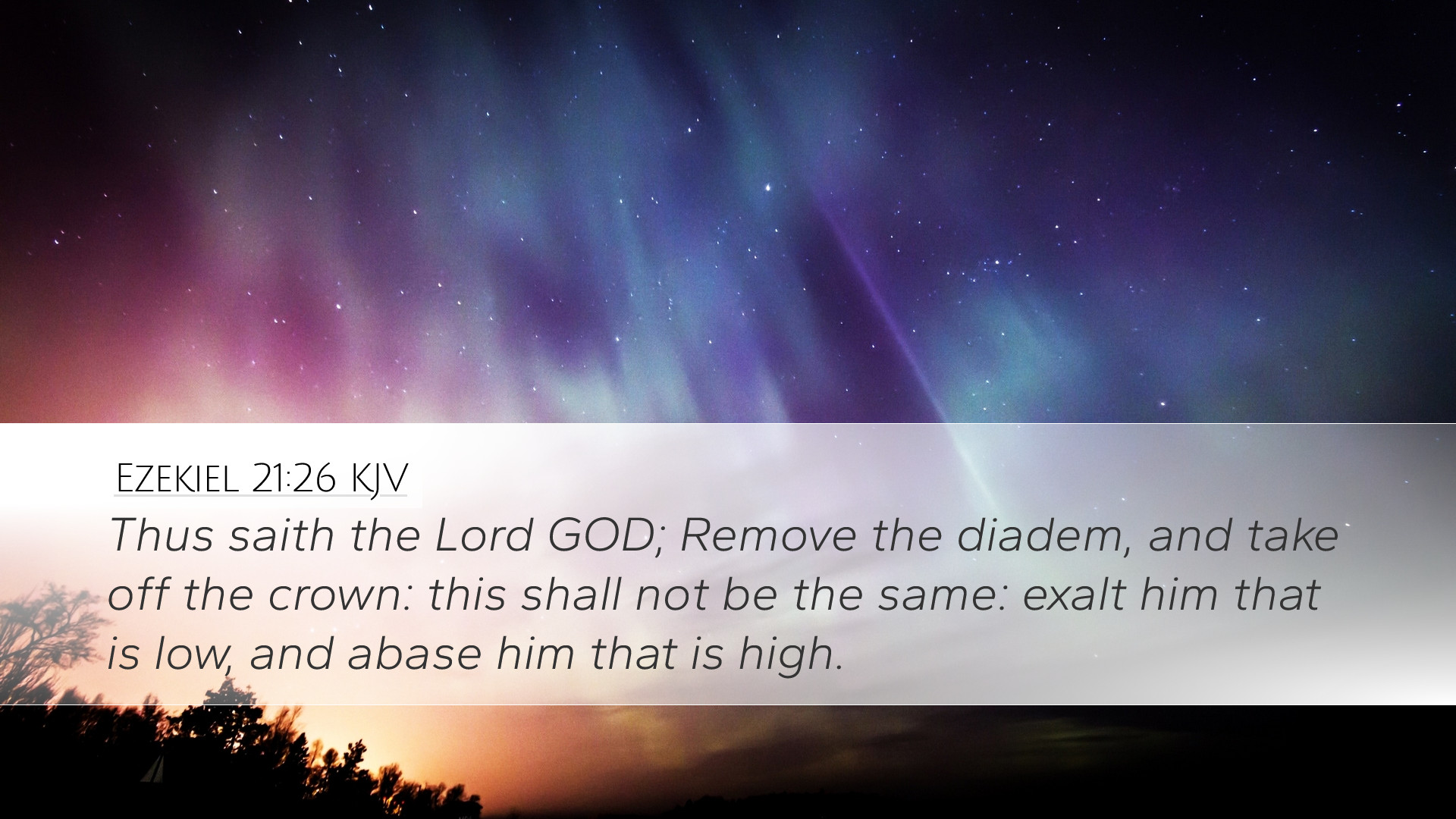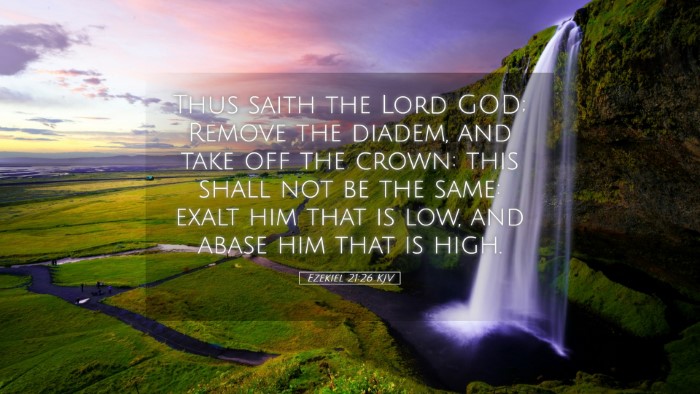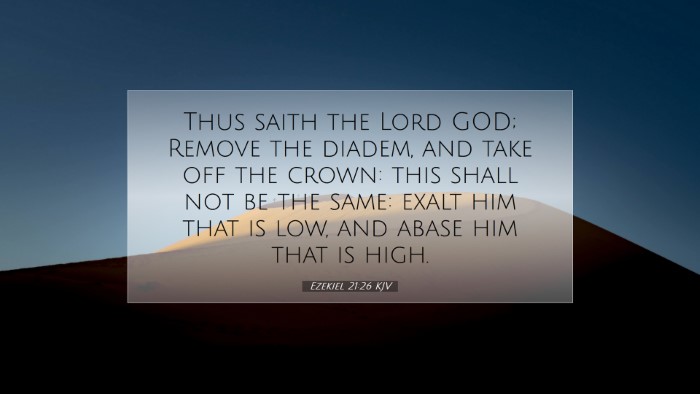Bible Commentary on Ezekiel 21:26
Ezekiel 21:26 states, "Thus saith the Lord God; Remove the diadem, and take off the crown: this shall not be the same: exalt him that is low, and abase him that is high." This verse emerges in a context of prophetic judgment, symbolizing a significant shift in power and authority. The commentary from various renowned public domain theologians provides profound insights into this passage.
Contextual Overview
Ezekiel, a prophet during the Babylonian exile, communicated God's message to Israel, focusing on divine judgment and restoration. The chapter highlights God's sovereignty over nations and His ultimate control over the destinies of kingdoms. Here, God announces the removal of the crown as a sign of judgment against the reigning powers.
Insights from Matthew Henry
Matthew Henry emphasizes that this pronouncement of removing the diadem is not merely a political maneuver but a divine decree. He interprets the "diadem" and "crown" as symbols of authority, signifying that God has the right to install and remove kings at His will. Henry notes:
"God will take away the dignity and power from those who abuse it, and He will raise the humble and lowly to positions of honor."
This portrays God's justice, showcasing the divine principle of humility versus pride. God's wisdom operates contrary to human expectations, raising the lowly while humbling the proud.
Insights from Albert Barnes
Albert Barnes expands upon the theological implications of the verse, emphasizing the transition in leadership roles within Israel. He suggests that God, through the removal of the crown, is executing a significant reformation in society:
"This is a warning to all mankind of the uncertainty of human glory and power; all kingdoms are subject to change as per divine providence."
Barnes highlights the broader ecclesiastical implications, suggesting that God will allow a reordering of spiritual leadership, implying that the faithful remnant will rise while the unfaithful will fall.
Insights from Adam Clarke
Adam Clarke delves into the linguistic and historical elements surrounding this verse. He notes that the removal of the diadem signifies both a literal and spiritual dethronement. Clarke observes:
"The removal of the crown foreshadows the end of a corrupt leadership, and it acts as a prelude to a new dispensation in God's governance of His people."
This highlights a theme of renewal and reformation, where God's judgment serves as a precursor to restoration. Clarke's commentary places a strong emphasis on understanding God's overarching plan for His people, indicating that divine judgment is not an end but a means to achieve righteousness.
Theological Implications
From these commentaries, we can garner several theological implications:
- Divine Sovereignty: God holds ultimate power over earthly kingdoms, and His will prevails against the backdrop of human ambition.
- Reversal of Fortunes: The principle of elevating the humble while lowering the proud is a recurring theme throughout Scripture, demonstrating God's commitment to justice.
- Judgment as Preparation: God's judgments, while severe, pave the way for restoration and renewal among His people.
Application for Today
This passage carries significant application for contemporary believers. In an age marked by political instability and moral ambiguity, Ezekiel 21:26 serves as a reminder of God's control over the leaders we see. Pastors and theologians can draw encouragement from this verse by pointing to the following applications:
- Hope in God's Sovereignty: Trusting that God is in control, even when earthly powers seem overwhelming.
- Call to Humility: Encouragement for leaders to remain humble, recognizing that their authority is granted by God and can be taken away.
- Expectation of Justice: Assurance that God will ultimately rectify injustices and elevate those who remain faithful to Him.
Conclusion
Ezekiel 21:26 presents a pivotal moment of transition in leadership, capturing the essence of divine judgment and the hope of restoration. Through the insights of Matthew Henry, Albert Barnes, and Adam Clarke, we see a profound theological depth that speaks across ages.
In understanding the implications of this verse, may believers find both caution and comfort in the unwavering sovereignty of God and His righteous governance.


